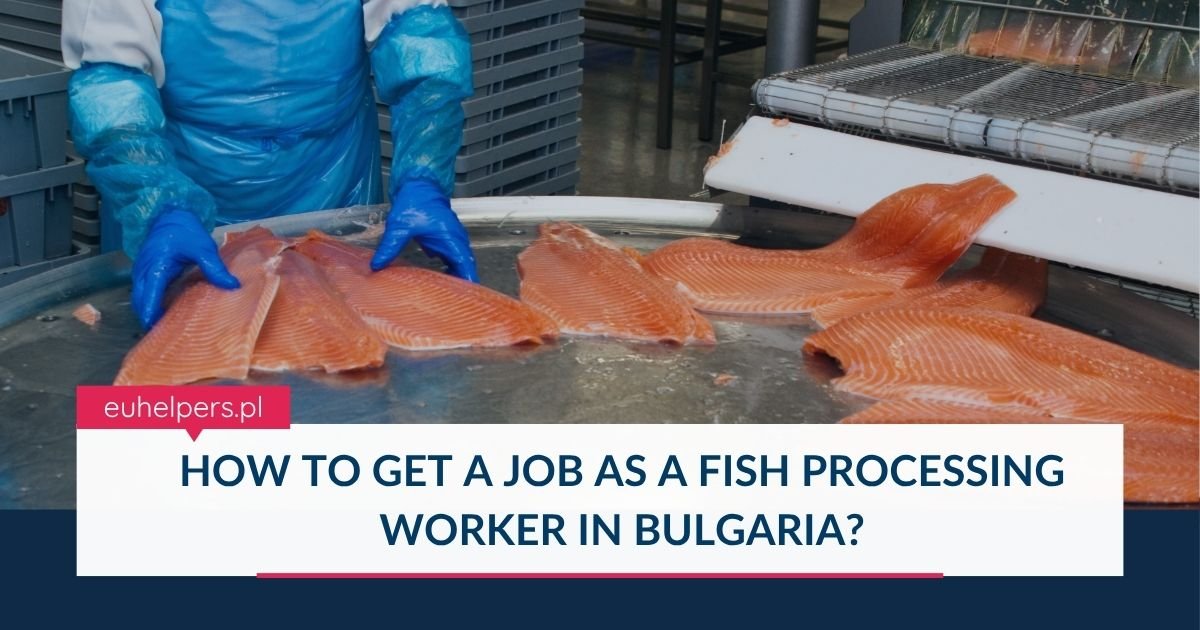
Bulgaria’s fish processing industry is growing steadily, creating job opportunities for both local and international workers—particularly those with experience in seafood handling and production. For non-EU citizens, working in this field involves several legal and practical steps, but with the right skills and preparation, it can be a rewarding opportunity.
? 1. Job Search and Application Process
? Explore Job Portals
Begin by searching for job openings on leading Bulgarian platforms.
You can also use global job boards by entering keywords like “Fish Processing Worker Bulgaria” or “Seafood Process Operator Bulgaria.”
? Target Local Employers
Bulgaria is home to several well-established fish processing companies. Check their official websites or social media platforms for direct job listings.
? Work With Recruitment Agencies
Connect with recruitment agencies in Bulgaria that focus on placing foreign workers in the food and processing sectors. These agencies can also assist with visa applications and legal compliance.
✉️ Prepare a Strong Application
When applying, highlight relevant experience such as:
-
Fish filleting, portioning, packaging, or quality control
-
Operation of processing machinery (deheading, gutting, or de-boning machines)
-
Adherence to food safety and hygiene standards
-
Ability to work efficiently under pressure, independently or in teams
? 2. Visa & Work Permit Requirements (for Non-EU/EEA/Swiss Citizens)
✅ Secure a Job Offer
You’ll need a formal job offer from a Bulgarian employer willing to sponsor your work permit.
? Employer Applies for a Work Permit
Your employer must submit an application to the Bulgarian National Employment Agency, proving the position cannot be filled locally.
? Apply for a Type D Visa
Once your work permit is approved, apply for a Type D (long-stay) visa at the Bulgarian embassy or consulate in your country. Required documents typically include:
-
Valid passport
-
Approved work permit
-
Employment contract
-
Criminal background check
-
Medical certificate
-
Health insurance
-
Proof of accommodation in Bulgaria
-
Evidence of sufficient financial resources
? Apply for a Residence Permit
Within 90 days of arrival in Bulgaria, you must apply for a residence permit at the Migration Directorate to legally reside and work.
⚙️ 3. Required Skills & Qualifications
? Essential Technical Skills
Employers look for experience in:
-
Fish filleting, cutting, portioning, packaging
-
Operating processing machinery (e.g., deheading, gutting, de-boning)
-
Conducting quality control checks on seafood products
? Food Safety & Hygiene Knowledge
You should be familiar with:
-
HACCP (Hazard Analysis and Critical Control Points)
-
GMP (Good Manufacturing Practices)
-
Workplace safety standards and procedures for waste handling
? Physical Endurance
This role involves:
-
Standing for long periods
-
Handling heavy loads (up to 50 kg)
-
Working in cold and high-speed environments
?️ Language Skills
Basic knowledge of Bulgarian is beneficial, especially for workplace communication and integration, though not always mandatory.
? Important Notes for Foreign Applicants
-
Workforce Limitations: A company in Bulgaria can employ foreign (non-EU) workers only up to 20% of its average workforce from the previous year.
-
Permit Duration: Work permits are generally issued for 1 year, with renewals possible up to a maximum of 3 years.
-
Labor Rights: Bulgarian labor laws protect foreign workers' rights, ensuring fair treatment, proper contracts, and safe working conditions.
The fish processing sector in Bulgaria offers stable employment with fair labor protections. By preparing a compelling application, gaining employer sponsorship, and meeting immigration requirements, non-EU workers can successfully enter the industry. Highlighting your technical skills, physical stamina, and commitment to safety standards will significantly increase your chances.
Good luck in your journey to becoming a fish processing worker in Bulgaria! If you need help crafting a CV or finding job listings, feel free to ask.
